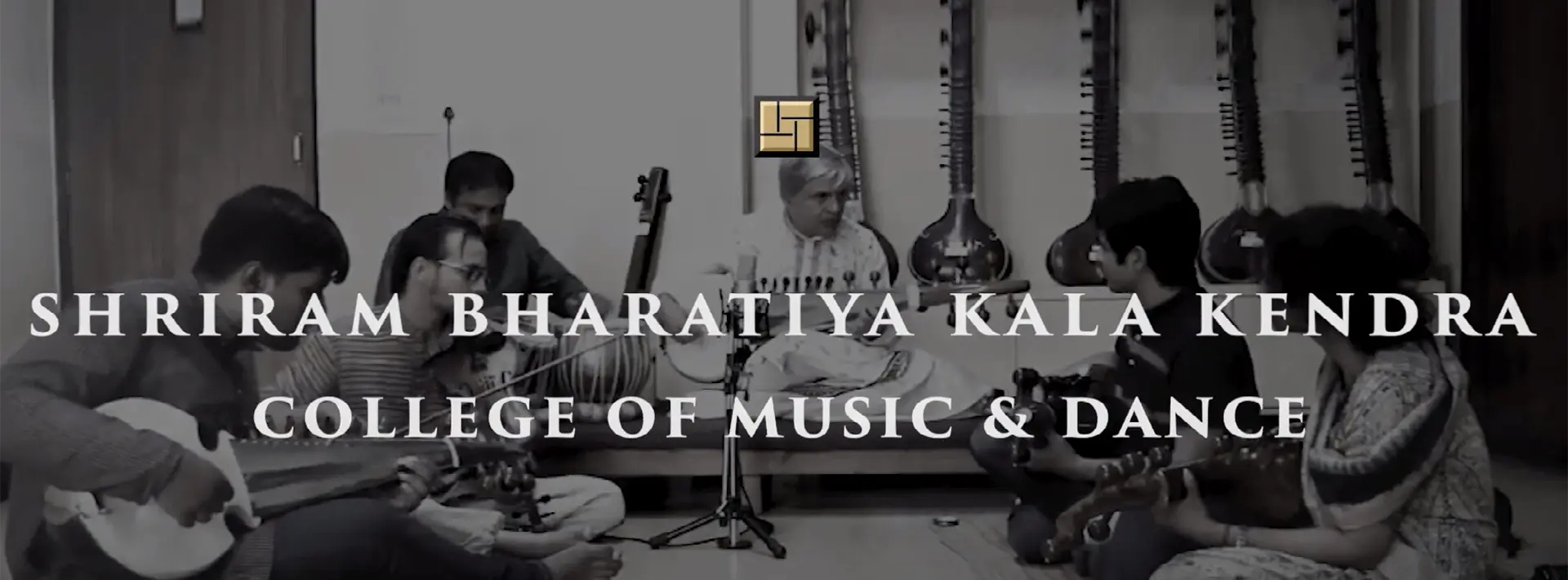
About the College
Created in 1952, the Kendra has a rich history of success in the world of Performing Arts. It is a vibrant cultural hub that displays a combination of rich Indian traditions and modern views.
The Kendra’s objective is to offer each student education in a secure and supportive atmosphere that encourages a passion for knowledge and understanding, helping them to develop strong values, self-discipline, motivation, and excellence in learning. The Kendra also helps students build their skills, promotes them to be self-reliant, and prepares them to be responsible citizens.
The learning process is viewed as both rigorous and enjoyable at the Kendra. We believe that art education should promote creativity, independent thinking, and a solid base in one or more Performing Arts fields. We provide learners with not just good education but also an interesting environment to train and perform.
At our College, the students are encouraged and inspired to become responsible for India’s rich cultural heritage. Here, the students have the opportunity to be exposed to the diversity of India’s Performing Arts through a variety of courses. Prominent art forms such Hindustani Classical Music and Indian Classical Dances including the Mayurbhanj Chhau Dance style are taught at our College.
With the facility of a wide range of courses, students can either explore their selected music or dance styles as a hobby or they can also choose to prepare themselves for a performing and/or teaching career.
The faculty include gurus from several fields who have won awards for themselves and the Kendra. Some former students driven by a desire to give back something of what they have learned here also form a part of the Teaching Body.
The Kendra’s library houses a unique collection of books, archival data, audio, and visual recordings. With its Kamani Auditorium, Campus Grounds, a Students’ Hostel and a Canteen, the Kendra is a hub for Performing Arts based in Central Delhi. It has a full calendar of cultural events in which every student is encouraged to participate actively.
Besides regular classroom activities, the students maintain contact with Kendra’s famous Performing Arts Group, a dance company that performs widely in India and internationally. Talented students get the opportunity to perform with the group, a benefit that contains the reward as well as the excitement of performing on biggest stages, nationally and internationally, and working with inspirational choreographers.
Being chosen to be a part of Kendra’s Student Body is both an honour and a duty. Those admitted will be directed and motivated in their work by the artistic passion of teachers and other students who currently learn here. The Campus is located in the heart of Delhi’s cultural hub, the Mandi House area. It nestles in the calm atmosphere of about two acres of space, surrounded by several prominent National Centres of Arts namely, Sangeet Natak Akademi, Lalit Kala Akademi, and National School of Drama. With a large number of theatre halls, open-air performance venues, art galleries, studios, libraries, and cafés, the area around the college gives an excellent opportunity to its students to experience the best of Culture and Performing Arts. The campus is within a short walking distance from the Mandi House metro station.
Apart from other dance forms taught at SBKK Centre of Performing Arts, Bharatnatyam and Kathak dance forms which are taught here are much respected and celebrated across the globe. Be it the beauty of Bharatnatyam steps or the nuances of a Kathak dance, audiences continue to marvel at the breathtaking performances that both these dance forms bring forth.
The Lucknow Gharana & Jaipur Gharanas which are the two main styles of Kathak are taught at SBKK. To attract students from all strata, It may also be noted that our training is imparted in both Hindi and English so that the students are well versed with detailed information and the exams which are conducted are at par with Global Standards. Whilst offering physical classes in all its streams, SBKK also offers online Tabla classes which also include other courses. Mayurbhanj Chhau is another dance form that the institute has adopted regular classes are held in this style too.
Programmes
Hobby
1. Foundation Course (Two Years)
This two-year course is meant for beginners who have no formal training in the discipline of their choice or any allied disciplines. It is open for children above 8 years as well as adults.
2. Certificate Course (Three Years)
This is the next level of our teaching that a student joins after the completion of the Foundation course. Direct entry to this course is also allowed if an applicant has obtained a Foundation level of training in the discipline elsewhere or is found to be competent enough for entry to the course after the audition for admission.
Advanced
1. Diploma Course (Two Years)
This third level of our courses is designed for more complex and higher levels of lessons in the main subject. This course prepares the students for a professional career as a performer or teacher.
2. Post-Diploma Course (Two Years)
The course is meant for higher training in the major subject, along with subsidiary subjects allied to the main discipline.
3. Weekend Classes
As a creative person, you can never stop learning. Develop your skills with the newly introduced ‘Weekend Classes’, which have been built especially for students who want to learn and only have time on weekends.
Kathak, Bharatanatyam, Harmonium as well as Hindustani Classical Vocal are the disciplines that have been introduced and a structured syllabus is being used to guide the training. These classes are taught by skilled instructors, such as Shubhi Johri and Amit Kinchi for Kathak, Suhail Bhan for Bharatanatyam, Manish for Harmonium, and Mohd. Hameed Khan for Hindustani Classical Vocal.
The programmes which fall under the regular schedule and the assigned Faculty are listed on their respective pages, which we believe aids in making an informed decision. Students enrolled in Weekend Classes will be awarded certificates once the exams are completed and when the specific term gets over. They can also continue for more terms if they so desire.
College of Indian Classical Dance
The college has a faculty of about 35 members comprising senior gurus along with talented young teachers and accompanying musicians in its different departments and disciplines. Senior disciples of the Gurus also provide assistance from time to time in imparting training to the youngsters. Lectures, demonstrations, and workshops by visiting artists and teachers further enrich the training programmes of the college.
The names of the faculty members are as follows:
Kathak (Jaipur & Lucknow Gharana)
Department of Kathak Dance offers two styles of Kathak – Jaipur Gharana and Lucknow Gharana.
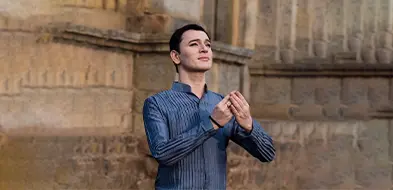
Dheerendra Tiwariis a disciple of the renowned guru of the Jaipur Gharana, Pt. Rajendra Gangani. He has been trained at the Kathak Kendra, the National Institute of Kathak Dance, New Delhi. Earlier, he was initiated into dance by Ruchi Sharma and Taposh Giri in Agra. He has been a recipient of scholarships from Delhi Sahitya Kala Parishad and Kathak Kendra where he completed Diploma Honours and studied up to the Post Diploma level. He has also learnt Hindustani Vocal Music and Yoga.
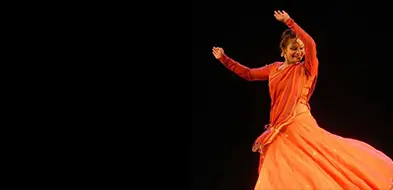
Anukriti Vishwakarma belongs to that new generation of Indian Classical Kathak dancers who embrace modernity along with tradition, to enrich the art journey. She completed her formal training in the style of the Lucknow Gharana at Kathak Kendra, New Delhi, under the guidance of the reputed Guru, Pt. Jai Kishan Maharaj. She was awarded the senior scholarship by the Ministry of Culture, Government of India, and is a graded artist of Doordarshan.
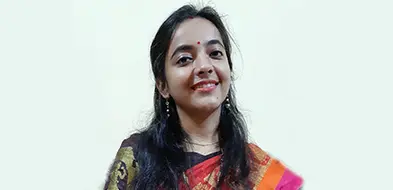
Nishtha Budhlakoti is a versatile young danseuse of the Jaipur Gharana. Her Kathak journey started under the guidance of Guru Mulla Afsar Khan. She gave her first performance at the age of 6. Later, she was groomed by Guru Prerana Shrimali at the Kathak Kendra, Delhi. She was awarded a senior scholarship by the Ministry of Culture, Govt. of India. Known for her command over technique and expression, she adds her style to each of her presentations. She has showcased her talent on various platforms in different parts of the country. She is not only a Kathak dancer but also a trained Yoga instructor and a captivating orator. Currently, Nishtha is shaping new talent at Shriram Bharatiya Kala Kendra, New Delhi, as a Kathak Guru.
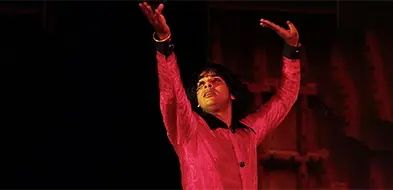
Amit Kinchi is not only a versatile dancer but also a singer, percussionist, and also music composer. He has composed music for his productions premiered in India and abroad like Tarana in Raag Charukesi, Jog, Darbari, Thumri Bandish in Raag Misra Bhopali Milan ka Moh and Bansuri in Raag Jhinjhoti, and many more compositions in different ragas. Amit has recently been awarded the title ‘Natya Mayooram’ for his outstanding contributions in the field of Kathak. He has also received the Natvar Gopikrishna National Award.
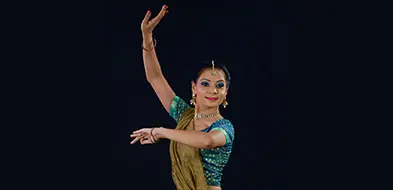
Bharatanatyam
Department of Bharatanatyam offers training in the Kalakshetra style of dance.
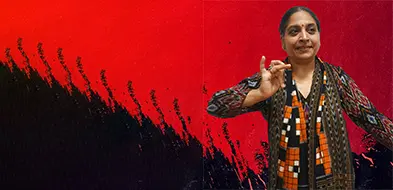
Sudha Jagannath commenced her training in Bharatanatyam during her childhood under Smt. Swarna Saraswati and later under Guru Govindarajan. She continued her training at the Shriram Bharatiya Kala Kendra, primarily under Sh. Justin McCarthy for over a decade. Sudha Jagannath has taught at the Kendra for over a decade too.
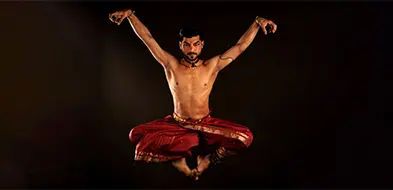
Suhail Bhanis a Doordarshan-graded artist who studied Bharatanatyam at Shriram Bharatiya Kala Kendra under the guidance of Gurus Justin McCarthy and Sudha Jagannath. He proved himself to be a natural dancer from the very beginning. He combines grace and strength in a distinctive way that is both lyrical and dynamic.
Odissi
Department of Odissi Dance offers training in the Kelucharan Mohapatra style of dance.
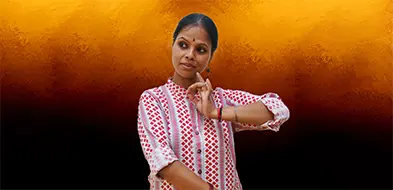
Sudha Mukhopadhyay is an Odissi performer and teacher. She is the daughter of a senior Pakhawaj player of Delhi, Sh. Gandhi Mallik. Sudha has been studying Odissi since 1992 under Smt. Madhavi Mudgal at the Gandharva Mahavidyalaya, New Delhi. She has attended dance workshops conducted by Guru Kelucharan Mohapatra and other leading gurus like Guru Leela Samson and Guru Banamali Maharana. She has assisted her guru as a teacher in her classes since 2003. She is empanelled with ICCR as a teacher as well as a performing artist. She has toured extensively with her guru across the globe and performed in many festivals of repute, including the Darbar Festival in London.
Mayurbhanj Chhau
Department of Chhau Dance offers training in the Mayurbhanj style of dance.
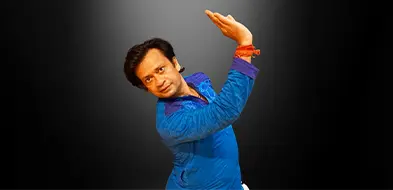
Swapan Mazumdar is trained in Mayurbhanj Chhau under Guru Shashi Dharn Nair and Late Guru Alak Niranjan Bisoi at the Shriram Bharatiya Kala Kendra, and also Guru Ramakant Sen and Guru Ajay Baithiya. He is trained in Kathak under Pt. Rajendra Gangani and Contemporary dance under Daksha Seth. He has been an integral part of the Kendra since 1994, first as a student and then as a notable artist in its flagship productions such as Ravan in Shri Ram and Duryodhan in Shri Krishna. He has been awarded a scholarship from Sangeet Natak Akademi and Sahitya Kala Parishad. He has performed widely across the globe and has worked with many educational schools of repute as a choreographer and dance teacher.
College of Indian Classical Music
The college has a faculty of about 35 members comprising senior gurus along with talented young teachers and accompanying musicians in its different departments and disciplines. Senior disciples of the gurus also provide assistance from time to time in imparting training to the youngsters. Lectures, demonstrations, and workshops by visiting artists and teachers further enrich the training programmes of the college.
The names of the faculty members are as follows:
Hindustani Classical Vocal
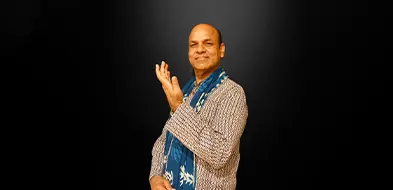
Mohammed Hameed Khan is an accomplished North Indian Classical Vocalist whose repertoire includes Sufi, Ghazals, and Folk-singing. He completed the seven-year Post Diploma in Hindustani Classical Music at the Shriram Bharatiya Kala Kendra, New Delhi. He has been trained in the Kirana Gharana by his guru, the late Smt. Shanti Sharma. He has taught music at the Pt. Shambhu Maharaj Kathak Academy (Dhwani) in New Delhi. Hameed Khan has performed across the world and has received the Surmani Award and the Delhi Sanskrit Academy Award.
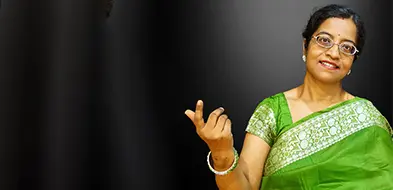
Archana Singh is a disciple of Late Shanti Sharma of the Kirana Gharana who obtained her Sahitya Alankar degree from Hindi Vidyapeeth, Devghar, Bihar and Post Graduate Diploma in Music from Shriram Bharatiya Kala Kendra, New Delhi. She completed her Sangeet Alankar from Akhil Bhartiya, Gandharva Mandal, Mumbai, and Sangeet Visharad from Pracheen Kala Kendra, Chandigarh. She is also a Praveen from Prayag Sangeet Samiti, Allahabad. She is a recipient of the National Scholarship from the Ministry of Human Resource and Development for Advanced Training in Hindustani Classical Vocal Music. Archana has several performances to her credit and has represented Delhi in the All India Youth Festival in Haryana, Bihar, and Kerala, and also the Youth Festival of Sahitya Kala Parishad in Delhi.
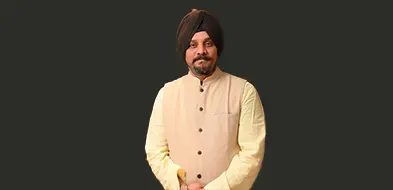
Manjeet Singh was introduced to the field of Hindustani Classical Vocal Music by Prof. B. S. Bali (retired Principal of Music & Fine Arts College, Jammu). He received guidance from Late Smt. Shanti Sharma, a renowned vocalist who was a Guru at the Kendra. He has been honoured twice by the Governor of Jammu & Kashmir for his contribution to the field of Hindustani Classical Vocal Music. He has also received the Swar Mani Award from Mumbai and the Sadbhawna Award from the Government of J&K. He is a recipient of a National Scholarship from the Department of Culture, Government of India.
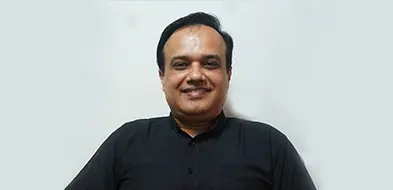
Deepak Kalra is a vocalist of Hindustani Music. He specialises in different forms of devotional music of India. He has presented solo performances at various places and has recorded songs in regional languages. He has sung for Doordarshan’s serial Saints of India and Audio CDs Gurbani and Hu – The Zikr released by Mystica Music. He has learnt Hindustani Classical Music from Pt. Madhup Mudgal. Deepak is Sangeet Visharad (equivalent to B. Music) in Hindustani Classical Music from Akhil Bharatiya Gandharva Mahavidyalaya Mandal, Mumbai and is a registered Teacher/Examiner at The Mandal.
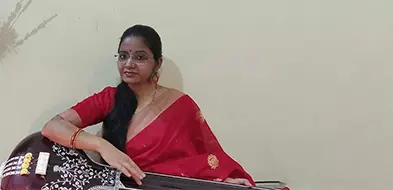
Bhawana Saran is currently employed as a vocal music instructor at the RD Rajpal Public School in Dwarka where she has been been a vocal music instructor for the past 15 years. Bhawana has additionally worked as an examiner for the Akhil Bharatiya Gandharva Maha Vidhyalaya Mandal. She continues to learn music from Dr. Shubhadra Desai, who is also her mentor. Bhawana has also earned the Sanskrit Samaradhak Sammanh award at the FICCI Auditorium for her work as a music teacher.
Hindustani Light Classical Vocal
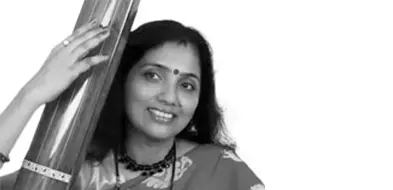
Mausumi Kundu is an accomplished Hindustani Classical and Semi Classical Vocalist, with specialisation in Thumri and Dadra” style. Her repertoire beautifully blends the uniqueness of two gharanas, keeping inherent sophistication and elegance of Lucknow Thumri and Bol-Banao, Pukar style of Banaras Thumri. She has learnt under the able guidance of Padma Shri Shanti Hiranand, Dr. Sanjeev Shende, and Pt. Rajendra Kandalgaonkar. Mausumi is an empaneled artist of ICCR, Graded artist of All India Radio and Doordarshan. She has also participated and performed in many programmes of All India Radio, Doordarshan Kendra, and on national and international TV channels.
Tabla
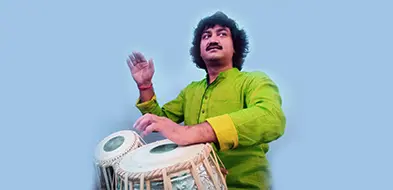
Prashant Trivedih as been a part of the music industry for the last 20 years. He is one of the rarest musicians who can play almost all the percussion instruments. At the age of 8, he started learning Pakhawaj under the guidance of Pt. Ramkishore Das. He was trained in Tabla under Sh. Mange Ram and Ustad Faiyaz Khan Sahib. Presently, he is under the noble guidance of the renowned Tabla Guru of Pune, Taal Yogi Pt. Suresh Talwalkar. He has been training students for a decade now and believes in constant learning as well as giving back the best to society. Currently, Prashant is shaping new talent in Shriram Bharatiya Kala Kendra as a Tabla Guru.
Sitar and Sarod
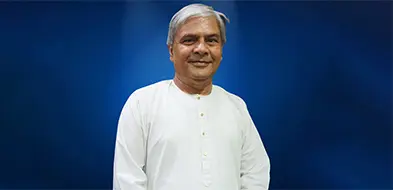
Biswajit Roy Chowdhury is one of today’s brilliant and serious exponents of Hindustani Classical Music. Biswajit Roy Chowdhury stands out not only for his singular commitment to music but also for his conscious combination of all that is the best in the Indian musical tradition. First as a student and then as a teacher, Biswajit Roy Chowdhury has a long association with the Kendra. He has performed all over the country and abroad, and on radio and television. He has been honoured by the Government of France with its prestigious award of Chevalier de L’ordre des Arts et Letters in 2006.
Harmonium

Manish is qualified in B. Hindustani Vocal UG Equivalent Music from Banaras Hindu University & M. Music in Hindustani Vocal UGC from Kashi Vidyapeeth Varanasi NTA UGC. Apart from this, he is also a Sangeet Prabhakar in Hindustani Vocal from Prayag Raj Sangeet Samiti, Prayag Raj. He has also been trained in Harmonium by Dr. Vinay Mishra, an internationally renowned Harmonium artist and professor at Delhi University. Manish is a Hindustani Classical and Semi-Classical Vocalist, Sufi and Folk Singer, and has performed in Spic Macay cultural programmes in Indian schools. He has experience teaching music at CBSE and ICSE board schools and conducting national, educational, and cultural festivals in 10+2 schools. Manish has been a music teacher at Raj English School III, Varanasi, Uttar Pradesh & City Convent School, Ballia, Uttar Pradesh.
Workshops
Tabla
Odissi
Kathak
Admission Process
Admission Procedure, Rules and Regulations
- The Academic Year of the college commences on the first working day of the month of July every year. The process of admission will start three months prior to the date.
- The application for admission has to be made by filling up the application form attached with the College Prospectus (Price: Rs. 300). The application form can also be downloaded from the website. The duly completed application form together with a copy of the required documents, such as proof of age and residence, certificates of past education and training etc., should be sent by post or by hand addressed to ‘Director, Shriram Bharatiya Kala Kendra, 1, Copernicus Marg, New Delhi – 110 001’. These can also be sent by email at sbkk@thekendra.com. The last date for the submission of the application for admission will be notified every year.
- The minimum age for admission to the Foundation Course in college is 8 years.
- The selection for admission to the college is made on the basis of an audition and personal interview held at the college campus. The applicants are required to present themselves before the selection committee comprising the faculty members of the concerned department.
- The list of selected applicants will be put up on the notice board and website of the college. They are required to pay the Admission Fee, Annual Charges and applicable Tuition Fee before the start of the session.
- The selection of the international students is made on the basis of videos and CDs submitted by them. An interview over Skype or telephone may also be held. International students seeking direct admission are expected to follow detailed guidelines and rules to be announced later.
- A separate application for hostel accommodation is required to be filled up in the Hostel Application Form prescribed for the purpose. Ordinarily, only students residing outside Delhi shall be considered for hostel accommodation. Residents will be subject to the Hostel Rules.
Fees
A. Application
| S. No. | Particulars | Amount (INR) |
|---|---|---|
| 1 | Prospectus-cum-Application Form (By Hand only) or Application Fee | 300 |
B. Registration and Admission (New Students)
| S. No. | Particulars | Amount (INR) |
|---|---|---|
| 1 | Admission Fee | 1000 |
| 2 | Security Deposit (Refundable) | 1000 |
C. Annual Charges (Payable at Admission by New Students and before 31st July by Continuing Students) (New Students)
| S. No. | Particulars | Amount (INR) |
|---|---|---|
| 1 | Library Fee | Nil |
| 2 | Bi Annual Examination Fee (Half Yearly – December & Final – May) | 500 |
| 3 | Founder’s Day Fee/Students’ Activity Fee | Nil |
| 4 | Identity Card Fee | Nil |
D. Tuition Fee
| Particulars | Amount (INR) (per month) | Payment per Qtr. | Payment per Annum |
|---|---|---|---|
| Foundation Course | |||
| I Year | 2400 | 6900 | 27600 |
| II Year | 2600 | 7500 | 30000 |
| Certificate Course | |||
| I Year | 2900 | 8400 | 33600 |
| II Year | 3200 | 9300 | 37200 |
| III Year | 3500 | 10200 | 40800 |
| Diploma Course | |||
| I Year | 3900 | 11400 | 45600 |
| II Year | 4200 | 12300 | 49200 |
| Post-Diploma Course | |||
| I Year | 4600 | 13500 | 54000 |
| II Year | 5100 | 15000 | 60000 |
| Specialisation Course | |||
| I Year | 6100 | 18000 | 72000 |
E. Residence
| S. No. | Particulars | Amount (INR) |
|---|---|---|
| 1 | One time Admission Fee | 2500 |
| 2 | Security Deposit for Hostel (Refundable) | 2500 |
| 3 | Accommodation Charges per month (including Electricity & Water) | 4000 |
| 4 | Security Deposit for Mess (Refundable) | 2500 |
| 5 | Mess Charges per month (Subject to Revision) | 4600 |
F. For International Students Sponsored by Indian Council for Cultural Relations (ICCR)
| S. No. | Particulars | Amount (INR) |
|---|---|---|
| 1 | Application Fee | 300 |
| 2 | Admission Fee | 2000 |
| 3 | Annual Charges | |
| i | Library Fee | 500 |
| ii | Examination Fee | 500 |
| iii | Founder’s Day/ Students Activity Fee | 1500 |
| iv | Identity Card Fee | 200 |
| 4 | Tuition Fee per month | 5000 |
| 5 | Tuition Fee for Second Subject (optional) per month | 3500 |
| 6 | Hostel Charges | |
| i | One time admission fee | 2500 |
| ii | Accommodation Charges per month (including electricity & water) |
4500 |
| iii | Mess Charges per month (Subject to Revision) | 4600 |
G. Fee and Deposits for International Students Seeking Direct Admission on Self-Finance Basis
| S. No. | Particulars | Amount (INR) |
|---|---|---|
| Will be same as in F above. The following additional payment will have to be made: | ||
| 1 | Application Processing Fee | 1000 |
| 2 | Security Deposit (Refundable) | 5000 |
| 3 | Security Deposit (Refundable) for Hostel (where applicable) | 5000 |
| 4 | Security Deposit (Refundable) for Mess (where applicable) | 5000 |
Payment Schedule and Rules
- All fees are payable in advance only by cash or Demand Draft in favour of “Shriram Bharatiya Kala Kendra” in the Accounts Office of the Kendra. Payment can also be made through NEFT direct into the PNB Bank Account No. 0648002100003307, IFSC Code: PUNB0184600 of the institution – Shriram Bharatiya Kala Kendra. Details in this regard may be obtained from our Accounts Office on 011-43503333.
- In case of new admissions, fees and deposits including Admission Fee, Annual Charges, Security Deposit, and Tuition Fee for the first three months will be payable at the time of admission. To secure their seats in the respective courses, candidates are advised to pay the due amount soon after the list of selected applicants is announced and before the last day of payment is notified from year to year. Candidates who due to economic reasons are unable to pay 3 months fees at a time may make an application to the Principal to seek permission to pay on a monthly basis.
- Old students who are continuing their training mid-course are required to pay their dues including Annual Charges and Tuition Fee for the first three months by the 15th of July.
- All students shall pay Tuition Fee quarterly for the remaining three quarters of the academic year before the 15th of the first month of the quarter, i.e. by 15th October, 15th January, and 15th April, except such students who have been allowed to pay fees on a monthly basis. A late fine of Rs. 100 will be charged if the payment is delayed up to the end of the month. Thereafter, the fine for delayed payment will be Rs. 500 up to the end of the next month. Thereafter, the student’s name will be struck off the rolls and his/her security deposit will be forfeited. If such a student wishes to continue, he/she will have to seek readmission with a fine of Rs. 1000.
- Fees and dues will be accepted in the Accounts office of the college between 10:30 am to 1:00 pm and 2:00 pm to 5:00 pm on working days only. Or alternatively through NEFT or RAZORPAY.
- If a student joins a second subject, the tuition fee of the second subject will be charged.
- If a new student is admitted in the middle of the term, fees will be charged on pro rata basis.
- Fees once paid is not refundable.
- If a student leaves before completion of the course, the security deposit will not be refunded.
- One month fee waiver for students who pay full year’s fees in advance.
Pay Fee Online
Pay Admission Form Fee
Particulars
New Students Indian Nationals
(from 1st July 2022)
New Students Foreign Nationals
(from 1st July 2022)
Old Students Indian Nationals
Old Students Foreign Nationals
FOUNDATION COURSE 1 Year (FC1)
FOUNDATION COURSE 2 Year (FC2)
CERTIFICATE COURSE 1 Year (C1)
CERTIFICATE COURSE 2 Year (C2)
CERTIFICATE COURSE 3 Year (C3)
DIPLOMA COURSE 1 Year (D1)
DIPLOMA COURSE 2 Year (D2)
POST-DIPLOMA COURSE 1 Year (PD1)
POST-DIPLOMA COURSE 2 Year (PD2)
Past Faculty
Some eminent teachers on the faculty of the Kendra over the years.
Hindustani Vocal Music
- Amarnath
- Aminuddin Khan Dagar
- Dilip Chandra Vedi
- Ishtiaq Hussain Khan
- L. K. Pandit
- Moinuddin Khan Dagar
- Munnawar Ali Khan
- Mushtaq Hussain Khan
- Naina Devi
- Shanti Sharma
- Siddheswari Devi
- Vilayat Hussain Khan
Vocal Music (Light Classical)
- Indu Prakash
- Shanti Hiranand
Instrumental Music
Sarod
- Amjad Ali Khan
- Hafiz Ali Khan
Sitar
- Debabrata Chowdhury
- Wahid Khan
Rudra Veena
- Asad Ali Khan
Pakhawaj
- Bhagwat Upreti
- Purushottam Das
Tabla
- Akram Khan
- Bundu Khan
- Habibuddin Khan
- Hasmat Ali Khan
- Inam Ali Khan
- Munnu Khan
Vocal Music (Light Classical)
- Indu Prakash
- Virendra Malviya
Dance
Kathak
- Bansi Lal
- Birju Maharaj
- Devi Lal
- Durga Lal
- Harish Gangani
- Kundan Lal
- Lachhu Maharaj
- Prerna Shrimali
- Shambhu Maharaj
- Sundar Prasad
- Vaswati Misra
- Nandini Singh
odissi
- Aloka Panikar
- Mayadhar Raut
Bharatanatyam
- Deepanjali Bedi
- Leela Samson
- Sudha Jagannath
Chhau
- Krishna Chandra Naik
- Olek Niranjan Mink
- JJ Sai Babu
Yoga
- Subba Rao
Facilities
Students' Hostel
The campus on Copernicus Road, New Delhi has a limited hostel facility in shared rooms, separately for male and female students. The rooms are equipped with basic amenities, furniture etc. The residence block of four floors includes guest rooms for visiting artists and accommodation for the hostel warden and female staff. The Mess facility includes Indian meals, breakfast, and tea.
Subject to availability, accommodation in the residence can be availed by Indian as well as foreign students. Private rented accommodation is also available in residential colonies within 10 km. from the college, to be hired directly by those interested. For making an application for accommodation in the Residence, please see ‘How to Apply’.
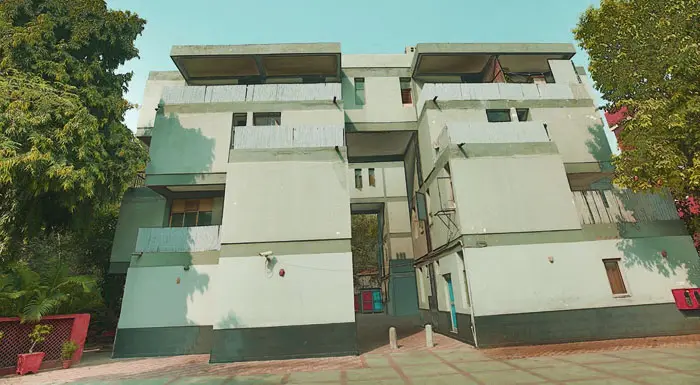
How To Apply
- Applications for hostel accommodation must reach the College before the end of the first semester. The allocation of the hostel would depend on the student’s behaviour and aptitude.
- Any candidate wishing to seek hostel accommodation shall be required to fill in the prescribed license form at the time of allotment of the hostel accommodation.
- Applicants shall have to attach with the hostel application a medical fitness certificate.
- All students who are allotted hostel facilities must come with their parents/guardian(s) for initial admission.
Hostel Rules
- Applicants shall submit a written undertaking that they will not accept any paid job or join any study/training course other than being conducted at the Kendra/College during the period of their studentship.
- Any candidate wishing to seek hostel accommodation shall be required to fill in the prescribed license form at the time of allotment of the hostel accommodation.
- For any outside assignments, the hostel students shall apply to the Principal, and obtain permission in advance.
- Hostel accommodation shall not be claimed as a matter of right. The decision of the Management shall be final and cannot be challenged. Once the hostel accommodation is granted, students shall strictly abide by the hostel rules of conduct and other terms and conditions.
- The SBKK authorities may recommend eviction of a student on disciplinary grounds; in which case, the concerned student would be given 48 hours to vacate the room.
- If any student seeks to leave the Hostel on valid grounds, he/she must seek prior permission through the Principal/Warden.
- The Mess charges should be deposited by the 10th of every month with the Accounts Department.
- It is compulsory for hostel students to have a subsidiary subject. In case, a student discontinues to stay in the hostel, he/she will have to pay the fees for the subsidiary subject.
- Students will keep the rooms neat and clean at all times.
- The rooms will be inspected once a week
Library
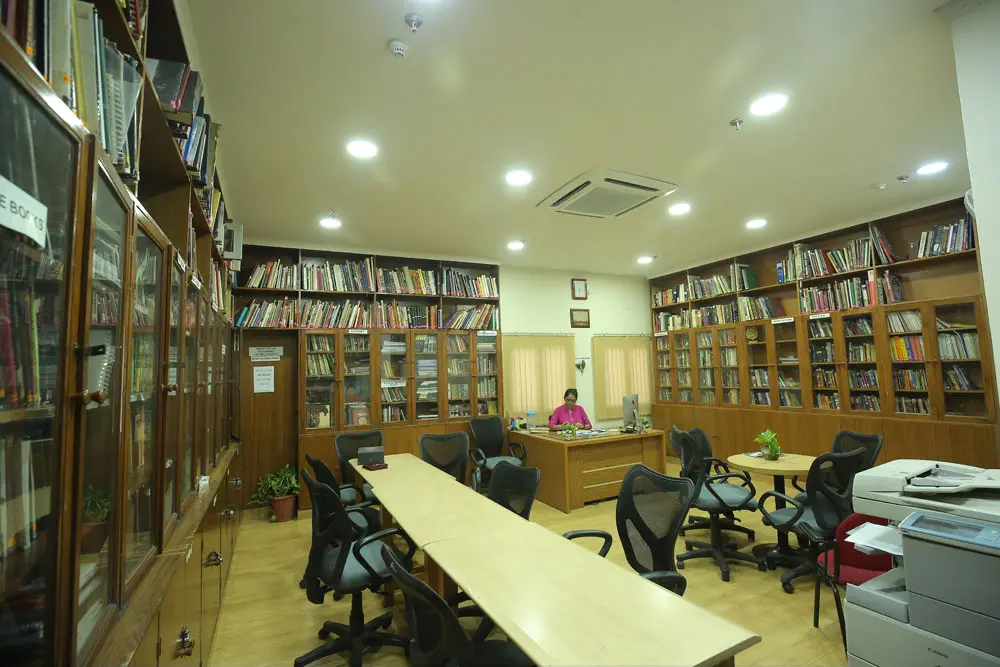
To attract college students, Kendra’s Library and Information Resource Centre was created. They are encouraged to read books to instil Arts, Culture, and Heritage in them.
It has also been observed that the reading habits of students nowadays are at a minimal level, with an increasing number of youngsters gravitating toward electronic media. With over 4000 books from varied fields, the users of the library have rich and stimulating experiences.
The ‘Kendra’ is also in the process of digitising its music archives which date back almost six decades. Digitised recording of most of India’s prolific Hindustani Classical Music will be available to the listeners.
Opportunities - Performances, Activities, and Careers
- Annual Founder’s Day Programme – Performance by students of all departments.
- Senior students are permitted to participate in their Guru’s private performances.
- Festival of Music & Dance by outstanding students and ex-students of the Kendra.
- Opportunities to learn and experience associated crafts and skills – ornament and costume-making, stage work and backstage support, light and sound designing, compering, programme presentation, auditorium management, designing of brochure, and programme literature etc.
- Participation in sponsored shows outside.
- Many students who have passed out of our college have had success in their careers. They have opened their institutes in India and overseas, become famous performing artists or have become Dance/Music teachers in prominent schools all over India.
- The Kendra organises a range of annual events and programmes throughout the year. These include Shri Krishna, Shri Ram, Shriram Shankarlal Music Festival, and Kendra Dance Festival. Regular monthly or quarterly programmes, such as the Jhankar series by eminent guest artists and the Ankur series of students’ performances are also held. The Kendra expects the students to participate actively in all functions. The ornaments and costumes are all made at the Kendra, and students are encouraged to participate in their making and learn in the process.
- The eligibility for extension of the hostel facilities depends, among other things, on the students’ participation/attendance in the above-mentioned activities.
General Rules & Regulations
- All students are required to attend classes regularly in the main discipline. They must attend at least 75% of the classes for being allowed in the Bi-Annual and Annual examinations. In the event that physical classes cannot be held due to Governmental restrictions on any account whatsoever, the classes will be held online and all students are required to regularly attend such classes from their homes and meet the minimum attendance criteria.
- Students may apply for leave in advance and get it sanctioned by their teacher and the Principal. In case of an illness, applications must be supported by a medical certificate from a Registered Medical Practitioner.
- All students are expected to use the library extensively. The annual examination will include 10% marks for the use of the library.
- The students are required to be dressed appropriately in classrooms. Non-adherence to the dress code will render the student ineligible for the class.
- Mobile phones should be switched off during classes, failing which they are liable to be confiscated for 24 hours. All Gurus will ensure adherence to this rule.
- Other than the fees, students are prohibited from paying any amount towards the collection of money in class. Any such request/demand by any student or faculty member should be brought to the notice of the Principal immediately.
- The continuity of a student in any course depends on the marks scored in bi-annual/annual exams. The decision of the Institution in this regard will be final.
- Students must respect the musical instruments in their class and help in their care and maintenance. They will not take the instruments out of the classroom unless specifically permitted.
